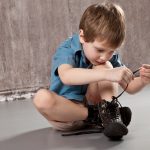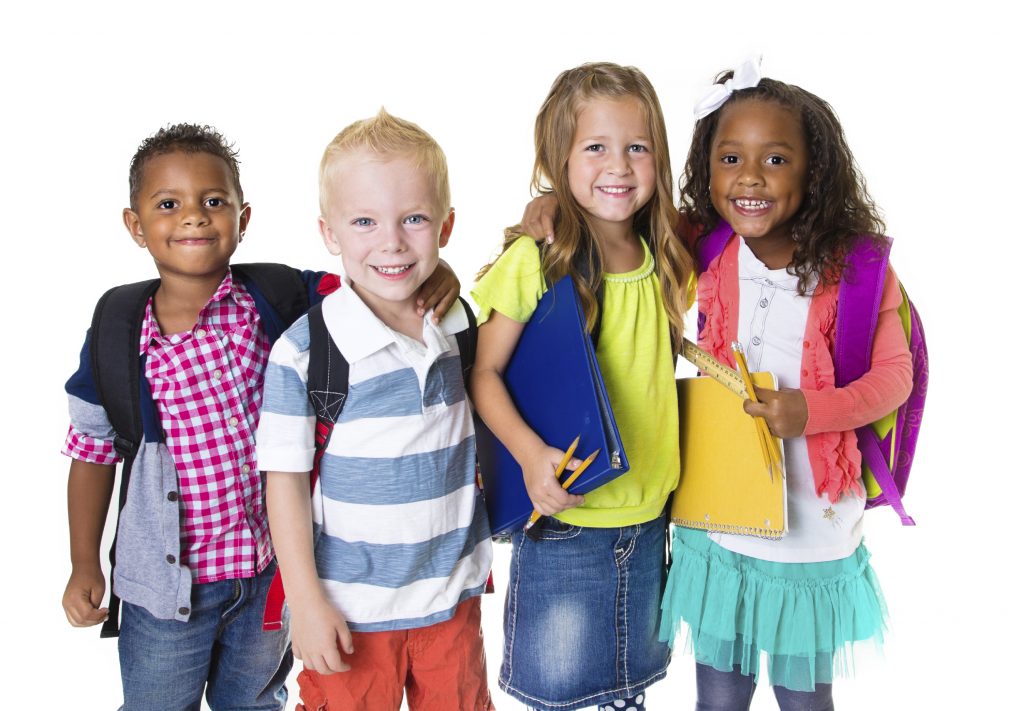Wow! I had no idea.
My son will be attending kindergarten for the first time next year. Last year he took a kindergarten readiness test at his preschool. As I looked through his test, I found myself thinking about what he needs to know before he starts kindergarten. I was not aware of the multitude of skills that my son needed to work on before starting kindergarten and what he will learn in kindergarten. Knowing what skills are assessed on kindergarten readiness tests will help my son be ready for kindergarten. Any help that I can give my son before school starts, and of course during the school year, will only increase his chances for success.
Every school district has a list of requirements to fulfill before a child begins school. These requirements range from current medical records to kindergarten readiness tests. Even if your school district does not have any testing requirements, I would recommend that parents look at some of the kindergarten readiness tests that can be found online. For specific requirements, search your school district’s homepage or inquire at the school your child will be attending. The California Department of Education has a directory of schools organized by county. Other states also provide a similar service, so contact your state’s Department of Education if you need assistance finding your school district.
What is a readiness test?
A kindergarten readiness test measures how ready a child is to start school. This test is designed to give the teacher and parent an idea of what the child already knows and establish a baseline that tells teachers what they need to cover. The test asks students an array of questions, everything from what students should already know before starting kindergarten to what they should know by the end of kindergarten.
What types of skills are assessed?
Last year when my son took his kindergarten readiness test, they tested him on both academic and non-academic skills. Some of the non-academic skills that he was tested on were:
Basic personal information: Who are you?
To be ready for kindergarten, my son needs to know about himself. Some basic personal information that my son needs to know is his name (first and last), age, birthday (month and day), address, telephone number, and information about his family. Playing games with your child is a great way to get him or her to learn information. My husband and I always associate the letters in my son’s name with other things that start with the same letter. Any time we talk about something that starts with that letter, in my son’s case it is the letter G, we ask him what else starts with the letter G, and so on for all of the letters in his name.
The website Hands on as We Grow has an excellent list of activities for helping children to learn names. My son will also need to know his mom and dad’s first and last names, as well as his phone number. We are coming into a time where there is no longer one central home phone in a family. Many families are forgoing a central line for individual cell phone numbers. This is important information. If my son were ever to become lost he needs to know how to get back to us. The blog Lasting Thumbprints shows eight ways for children to learn their address and phone number. We play games with him when we want to reinforce information. We have found that driving in the car is a great time to play learning games.
Fine motor skills: It takes practice
Fine motor skills are very important for kids to learn. Some fine motor skills assessed on kindergarten readiness tests are drawing lines and circles, holding a pencil, and cutting. Fine motor skills are the small movements made by the hands, wrists, fingers, feet, toes, lips, and tongue. My son, like other children, has been developing motor skills all of his life. Now that he is a preschooler, getting ready to attend kindergarten, he is working hard to develop his fine motor skills. My son is working on holding a pencil and crayon correctly, drawing multi-directional lines and circles, as well as threading beads on a string. These can be difficult skills to learn because fine motor skills take patience, which most young children lack. By the start of kindergarten my son should be able to draw people, trace letters and shapes, cut and paste paper, and use his preferred hand (right or left) for writing and drawing. My son is a little behind on the fine motor skills, particularly with drawing. I use the website ConnectAbility.ca to find activities for toddlers, preschoolers, and school age children to practice their fine motor skills.
Self–help skills: Learning to do it on my own

Teachers are already asked to do so much in a day that if students are lacking in self-help skills, it could be distracting from academic learning. I want my son to know these skills so when he is at school he does not have to ask for help. I want my son to have a learning environment that is as stress-free as possible, so I will do my best to help him get ready in this area. My son still struggles with some self-help skills. He is working on zipping up his jacket on his own. We practice every time he puts on his jacket. With my son I have noticed that when encouragement and praise are given, he conquers the task faster, but when censure is given he does not want to try anymore. A good way to help with the learning of self-help skills, and one that worked with my son, was to enact a routine. This article from Vanderbilt University talks about the importance of a routine in establishing independence. If my son can master these skills before the start of kindergarten, I feel that he will have an environment where he will be free to learn academically.
Academic skills: Don’t Panic
Academic skills are largely related to the most foundational kindergarten standards. Some of the academic questions that were on my son’s kindergarten readiness test covered what he should know before starting kindergarten. Other questions asked about material that he would be leaning during his kindergarten school year. Don’t Panic! The academic questions cover content that students will be learning during their kindergarten school year. These questions give teachers a baseline of knowledge for each student. Students are not expected to know the answers to all of the questions. Some of the academic skills that my son was tested on were:
Colors: The world is full of colors
An academic skill that children will learn is to recognize colors and the words assigned to them. The basic colors are red, blue, green, yellow, orange, purple, brown, black, pink, and gray. In my son’s preschool they are starting to ask the kids to match the word with the actual color. My son loves to learn on my phone or our tablet. BestAppsforKids.com has a list of apps specifically designed for learning colors, which usually multi-task with another skill like learning shapes. Flashcards, worksheets, reading, and coloring are other ways to help children learn the basic colors. My son responded more to the picture books and flashcards, but see what works best for you and your child.
Letters: A,B,C
The alphabet is a big component of a child’s education. A child will learn upper and lowercase letters and the sounds that they make. These skills are important to the foundations of reading and writing. When we taught my son the alphabet, we taught him the letters out of order and we did not teach him the alphabet song until he had already learned all of the letters. The reason we did this was so he could recognize the letters in any order, or as they will appear in a word. Often, children learn the alphabet song and parents assume that means they know the alphabet. It doesn’t! Letters are seen in both uppercase and lowercase so children will learn to recognize both. It is also important that the sounds those letters make are also learned. This is another great area where kids can play games to learn. Commonsensemedia.org has a list of apps, games, and websites that promote letter recognition. We played games with my son, quizzing him on the letter names and sounds for things that we saw throughout the day. He also played with apps and watched shows that helped teach letters. I think using a variety of tools really helped with my son’s ability to learn the letters and the sounds they make.
Numbers: Basic Math
Students will learn basic math skills. My son will learn how to count to about 30. In kindergarten he will do rote counting (one, two, three, four…) as well as counting physical objects. My son will also work on counting groups of items. He will learn how to add and subtract small numbers (usually the number 1 to or from a small number). My son will also learn sorting, ordering, pattern identification and basic shapes. I feel, as a parent, that if my son is receptive to learning that there is no reason why he cannot learn some of this information before he reaches kindergarten. As I have said before, my husband and I have had great success teaching our son through games. My son also uses flashcards and educational television shows to learn numbers and shapes. Commonsensemedia.org also has a list of apps, games and websites that can help kids learn math.
How can I help?
As a result of my son taking a kindergarten readiness test, I now know what level of readiness he is at. Every child’s strengths and weaknesses will differ. When my son took this test, we found out that he needed a little more help with fine motor skills and self-help skills. So, we have been working extra on these areas with him. It is my hope that I can help my son be ready to start kindergarten next year. I have looked at the kindergarten readiness test as well as the results from my son’s test and feel that I am addressing the areas that he needs work in. Does this mean that I will stop working with him in the areas that he is already proficient in? No! Just because my son received good marks on his test, it does not mean that he is done with them! Regular practice of these skills is important too.
Do you have a child who is about to start school for the first time? What are some your thoughts and concerns about what is expected of your child?

